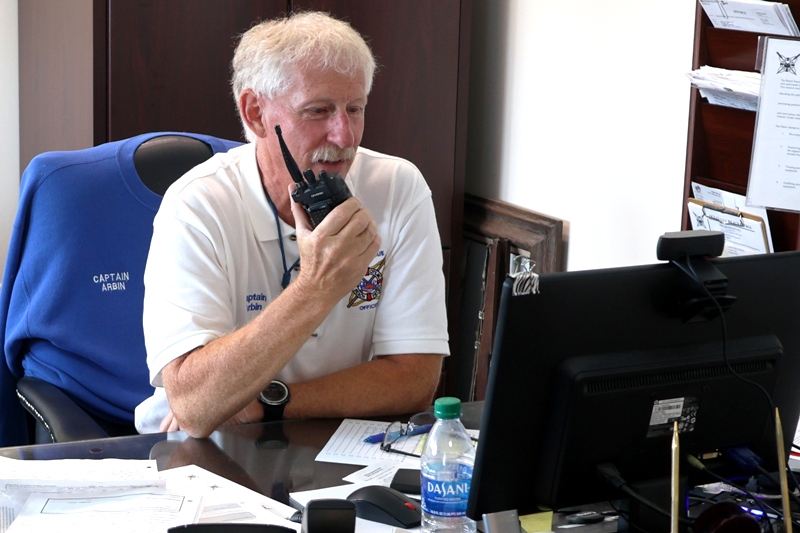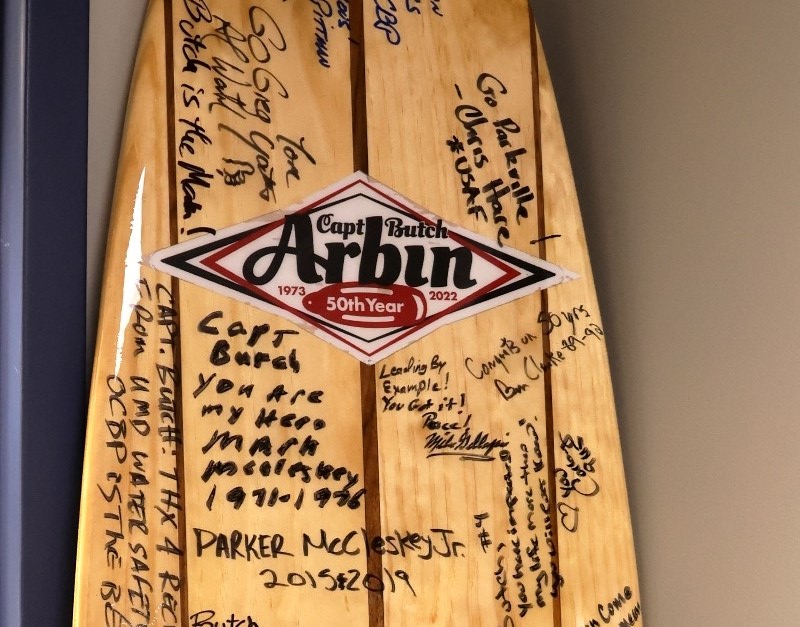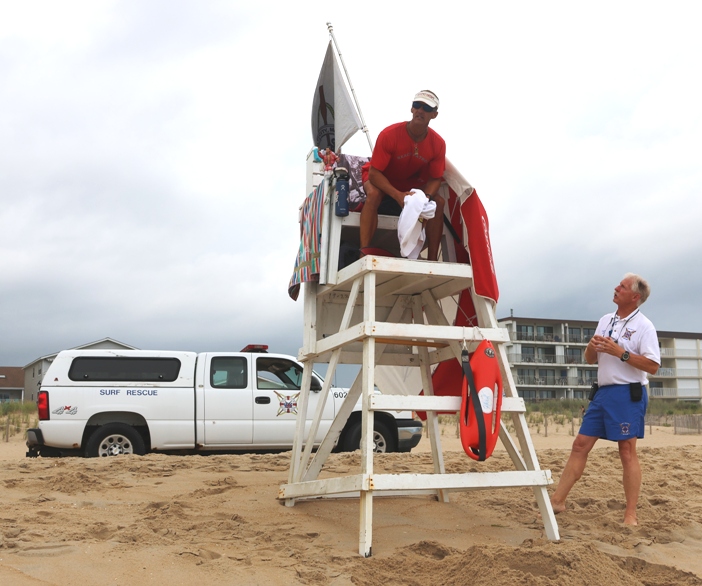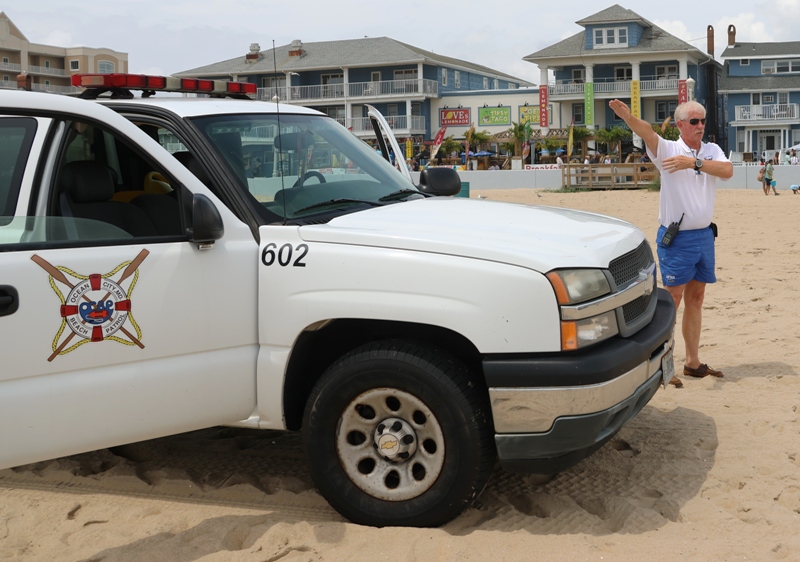Capt. Arbin in his 52nd Season Still Going Strong!
Delmarva’s best-known and longest-serving beach patrol captain is Ocean City’s Capt. Butch Arbin who joined the patrol in 1973 and became its captain in 1997.

He is the only city employee on a contract with the mayor and city council and they could dismiss him at any time. “I hope they don’t do that. I feel I still have a lot to do here to continue moving the patrol ahead,” he says adding that he has no plans that would cause him to leave.
“I’ve been teaching 47 years. I’m going back to teach 48 years, which most people don’t do that,” he points out. “The day I don’t want to get up and go to work is the day I retire,” he says.

Every season, Capt. Arbin is asked what motivates him. “It’s not about making the rescues, because I’ve done that. I’ve got 200 people who can do that. Now, I don’t even know how many times I’ve done CPR. I don’t know how many times I’ve responded to emergencies.” But watching people the patrol has hired grow as individuals and helping them in their careers is what he finds so rewarding.
He takes pride in the job he has done creating consistency within the organization. “Early on,” he notes, “policies, procedures, the way we evaluated, the way we rated the guards and the overall discipline just wasn’t there. It was a great patrol, but it was more like a club and today, you can’t do that.”
When he took charge, he implemented procedures, policies and protocols that had not been always in place. “We had great employees the whole time on beach patrol even before my time, but… we didn’t have training. We right now move people from the day they’re hired through a whole process to get them where they are,” he says.
“When I started,” he explains, “I was on a stand tomorrow. That was it… We didn’t even get trained in CPR/first aid when I started, just put on a stand!”

Now the patrol has an eight-day training academy and numerous certifications and Capt. Arbin has made employment more consistent. The lifeguards know when it comes to promotions how they’re done. “They know I have nothing to do with it,” he explains as he is not even involved in the process other than providing the data to the group that handles those promotions.

He views his job much like being the conductor of a symphony orchestra. “I don’t play any of the instruments necessarily. I played them before. I’ve done the different jobs. But my job is to make sure that when it’s time for the oboe to play, the oboe plays. When it’s time for the trumpet to play, the trumpet plays. And that’s what the conductor does. And that’s what it is here. I have 215 people who do different pieces of the job. I just have to make sure that it’s coordinated in a way that everybody does their part when it’s due,” he says.
There’s a saying he has, “Do what you’re supposed to do when you’re supposed to do it, the way it’s supposed to be done. No excuses… That’s a standard that any of us would want for a doctor… We go to the doctor, we want them to do what they’re supposed to do when they’re supposed to do it the way it’s supposed to be done and no excuses! We expect that, and it’s the same thing here!”


